Navigating the world of cat vaccinations can be a minefield. With terms like 'core' and 'non-core' vaccines flying around, it's enough to leave any cat owner scratching their head. But what do these terms mean? And more importantly, what do they mean for your furry friend?
In this comprehensive guide, we'll clarify all this jargon, so you can better understand what vaccinations your cat needs and why. We've also got some expert insights from vets Dr. Jeffery Moll and Dr. Frank Lee to help you make sense of it all.
From core vaccines like rabies, to lesser-known vaccinations and their potential side effects, we're covering it all. Read on and become a pro at understanding cat vaccinations. It's all in the name of keeping your whiskered companion happy and healthy.
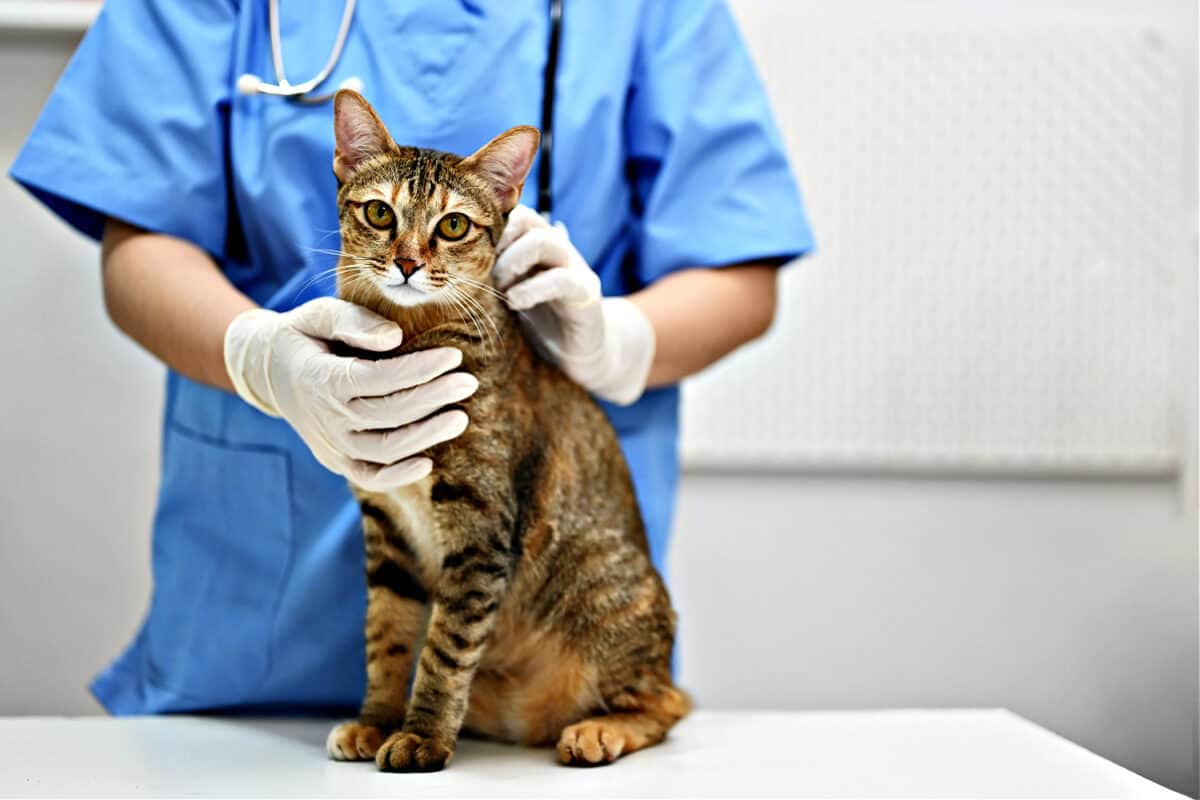
Understanding Core And Non-Core Vaccines: An Expert's Insight
“Vaccines are divided into core and non-core. A core vaccine is one everybody should get. Non-core vaccines are for exposed or at-risk cats,” says Dr. Jeffery Moll, DVM. “The key to any successful vaccination protocol is the cat's lifestyle—indoor vs. outdoor, single cat vs. multi-cat family.
Examination by a veterinarian prior to any vaccine is extremely important. In our practice, a large percentage of cats don’t get vaccinated because a problem is discovered during the physical exam or discovered while getting a medical history.”
“As with most medical problems, early intervention is the best hope for a positive outcome. Early intervention is also usually much more cost-effective,” he adds.
Dr. Moll recommends twice-a-year veterinary visits for your cat, not just when it’s time for his rabies shot. This way the veterinarian can see any changes, keep you updated on what to look for as your cat ages, and establish a baseline of bloodwork levels to refer to if a problem develops.
Should I Get All The Shots At Once?
“Giving all the vaccines at the same time is not a problem. If a cat is going to have a reaction, it usually is due to the actual vaccine rather than the number of vaccines given. The reaction is rare,” says Frank Lee, DVM.
Can My Cat Get Cancer Where The Shot Is Given?
“Adjuvant is basically an additive used to help the vaccine to generate a bigger immune response by the body so the amount of antibodies created will last longer. For dogs, this is not a problem at all. Cats - that’s a little different.
A cat’s body tends to mount a response to adjuvant, leading to a vaccination site cancer. So nowadays, when cat vaccines are given, ideally a non-adjuvanted vaccine is used,” said Dr. Lee. Ask your veterinarian if he is using non-adjuvanted vaccines.
Read more about vaccine-related sarcoma.
** Editor's note - latest research shows that it's the injection that can trigger sarcomas in cats in extremely rare cases - not the vaccine itself.
Which Vaccinations Do We Have To Have?
Core vaccines include Rabies, Herpesvirus -1, panleukopenia, and calicivirus. Rabies is required by law.
Rabies
The first rabies shot can be given to kittens as young as eight to twelve weeks of age. Revaccinate one year later. For adult cats, two injections, a year apart is recommended.
After that, your veterinarian must follow local and state laws—some require annual injections, some every three years.
Panleukopenia Virus (FPV), Feline Herpesvirus-1 And Feline Calicivirus (FHV-1/FCV)
Start these injections as early as six weeks of age and then every three or four weeks until your kitten is four months old. An adult cat would get two doses, a month apart. A year after the last shot, another dose is given, and then no sooner than every three years thereafter.
Panleukopenia Virus is also known as feline distemper. Feline Herpesvirus-1 is another upper respiratory disease, as is Feline Calicivirus.
Read more about Feline Herpes.
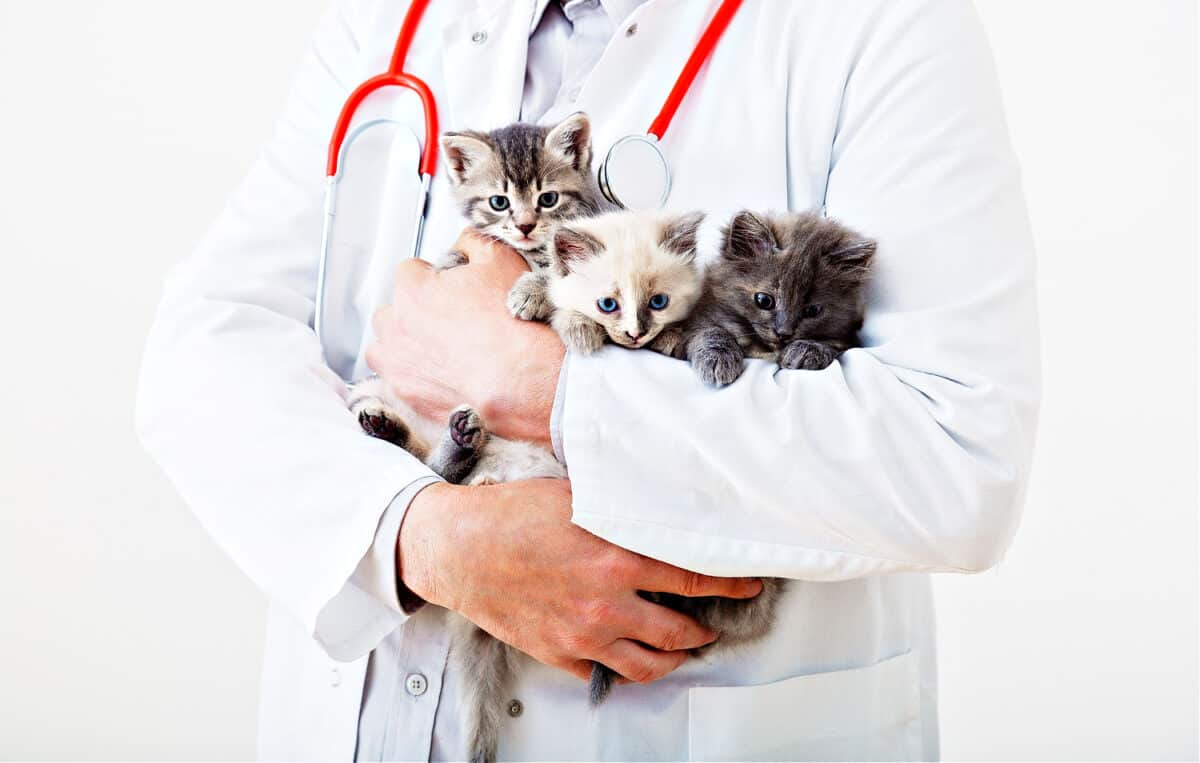
What Vaccinations Are Optional? Non-Core Vaccinations For Cats
Feline Leukemia Virus (FeLV)
FeLV vaccination is highly recommended for all kittens. Your cat should be tested for FeLV before receiving injections—only FeLV-negative cats should be vaccinated. Kittens can be vaccinated as early as eight to twelve weeks of age.
After a month, a second injection is given. In adult cats, there are two injections, also months apart. A booster inoculation is recommended only in cats considered to be at risk of exposure.
Feline Immunodeficiency Virus (FIV)
Not generally recommended, the FIV vaccine should be restricted to cats at high risk of infection. The vaccination induces the production of antibodies indistinguishable from those developed in response to FIV infection.
This will interfere with all antibody-based FIV diagnostic tests for at least a year following vaccination. The vaccine provides protection from some but not all, strains of the virus.
FIV is also known as Feline AIDS since it affects the autoimmune system.
SIGN UP FOR THECATSITE'S EMAIL UPDATES >
Chlamydophila felis
Indicated for cats with sustained exposure risk. This is for multiple cat environments where infection from the disease has been confirmed. Symptoms include runny, goopy eyes and a mild upper respiratory infection.
Bordetella bronchiseptica
Indicated for cats with specific risks. For dogs, this is the kennel cough shot, although it is not a shot at all. It’s a nasal spray.
Most cats will never need this. If your cat is a show cat or staying in a kennel, check with your veterinarian to see if he recommends this vaccination.
Feline Giardia
Not Generally Recommended. There haven’t been enough studies done to know whether this vaccination is effective or not. Giardia is a parasite that gets into the digestive system.
Symptoms include diarrhea. Infected cats can spread the parasite to other cats through the use of a common litter box.
Feline Infectious Peritonitis (FIP)
Not Generally Recommended. Limited studies are available on this vaccination. The level of protection is unknown and would only apply to cats who are FIP-negative before the vaccination is given.
What is FIP? A coronavirus spreads through the blood, into the tissues, causing inflammation. The interaction between the cat's own immune system and the virus is FIP. Read more about FIP.
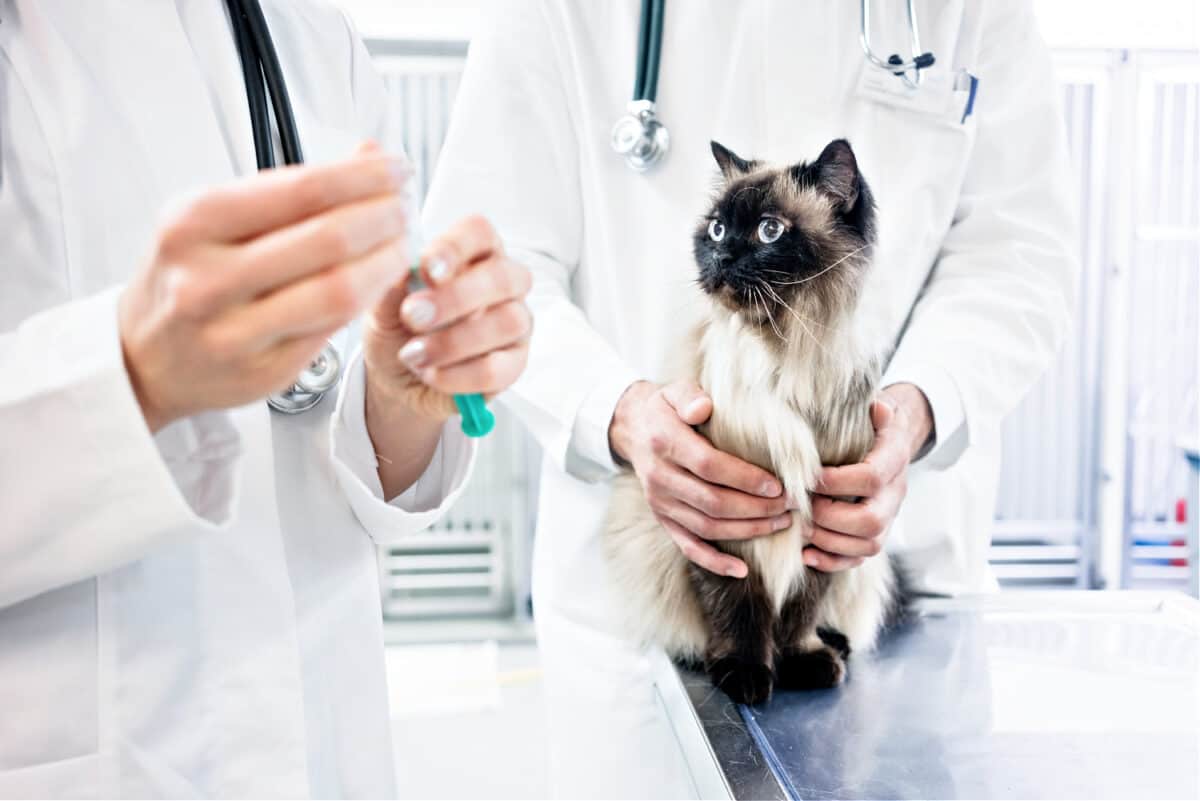
Essential Cat Care Tips For Optimal Health
In summary, as dedicated cat owners, we always aim to ensure our pets' health and well-being. Recent veterinary trends suggest a less-is-more approach regarding vaccinations, opting for fewer injections overall. Maintaining your cat's health extends beyond vaccinations and includes several other significant factors.
Firstly, provide your cat with the highest quality diet you can. Nutrition is the foundation of health, and a balanced, high-quality diet can significantly impact your cat's well-being.
Secondly, engage your cat both physically and mentally. Challenging games and puzzles can keep your cat's mind sharp and body active. Regular play is essential for their physical health and mental stimulation.
Relaxation and companionship are equally crucial. Enjoy the peaceful moments with your cat, as these help to foster a stronger bond and contribute to your cat's emotional well-being.
Lastly, regular visits to the vet should be a priority, at least twice a year. These check-ups allow your vet to spot any changes or potential issues early, establish a baseline for your cat's bloodwork levels, and keep you informed about what to look for as your cat grows older. These preventative measures can often lead to early detection of issues, contributing to a longer, healthier life for your cat.
SIGN UP FOR THECATSITE'S EMAIL UPDATES >
Comments? Leave them using the form below. Questions? Please use the cat forums for those!
Note: We may get commissions for purchases made through links on this page.


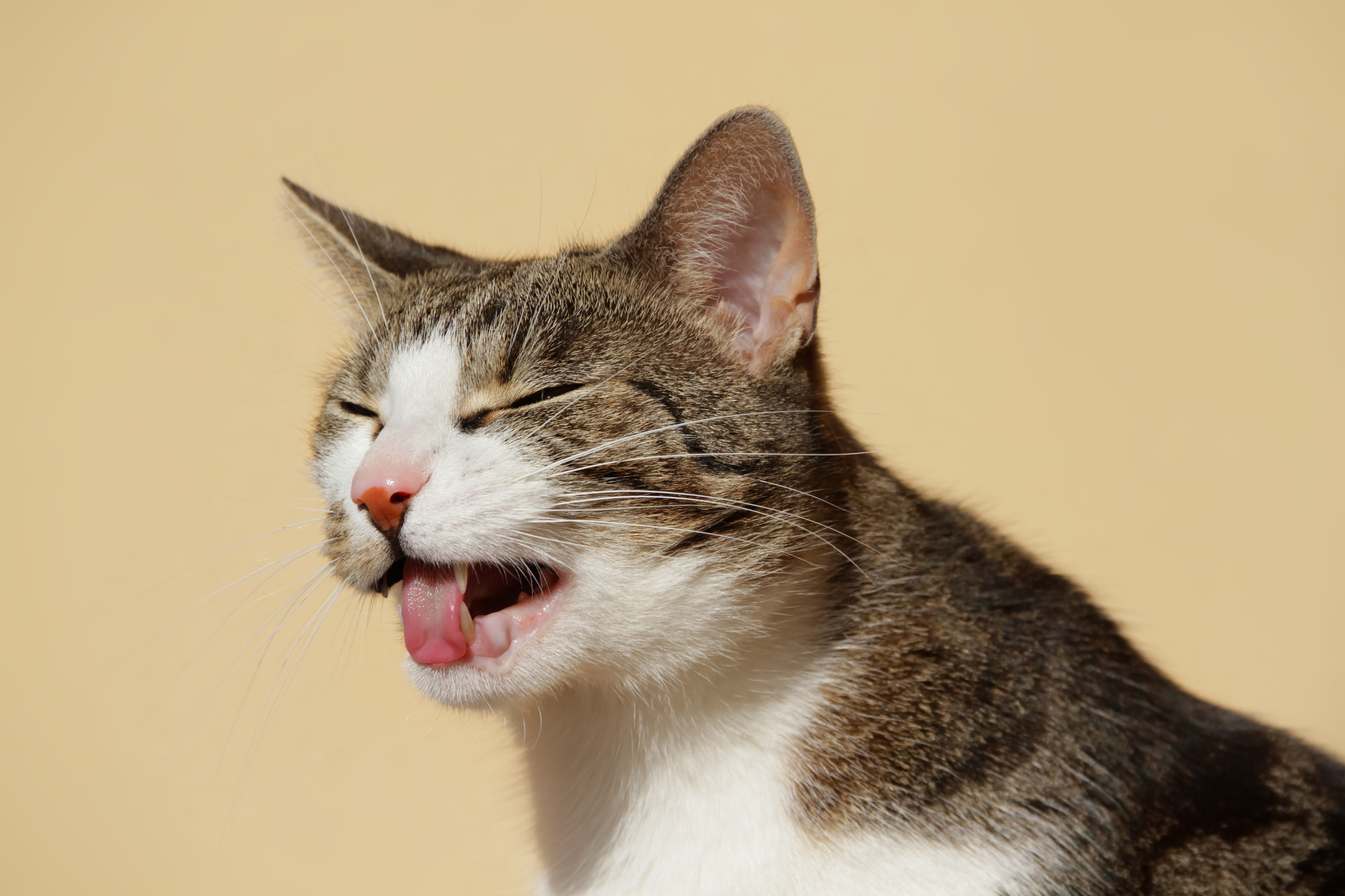
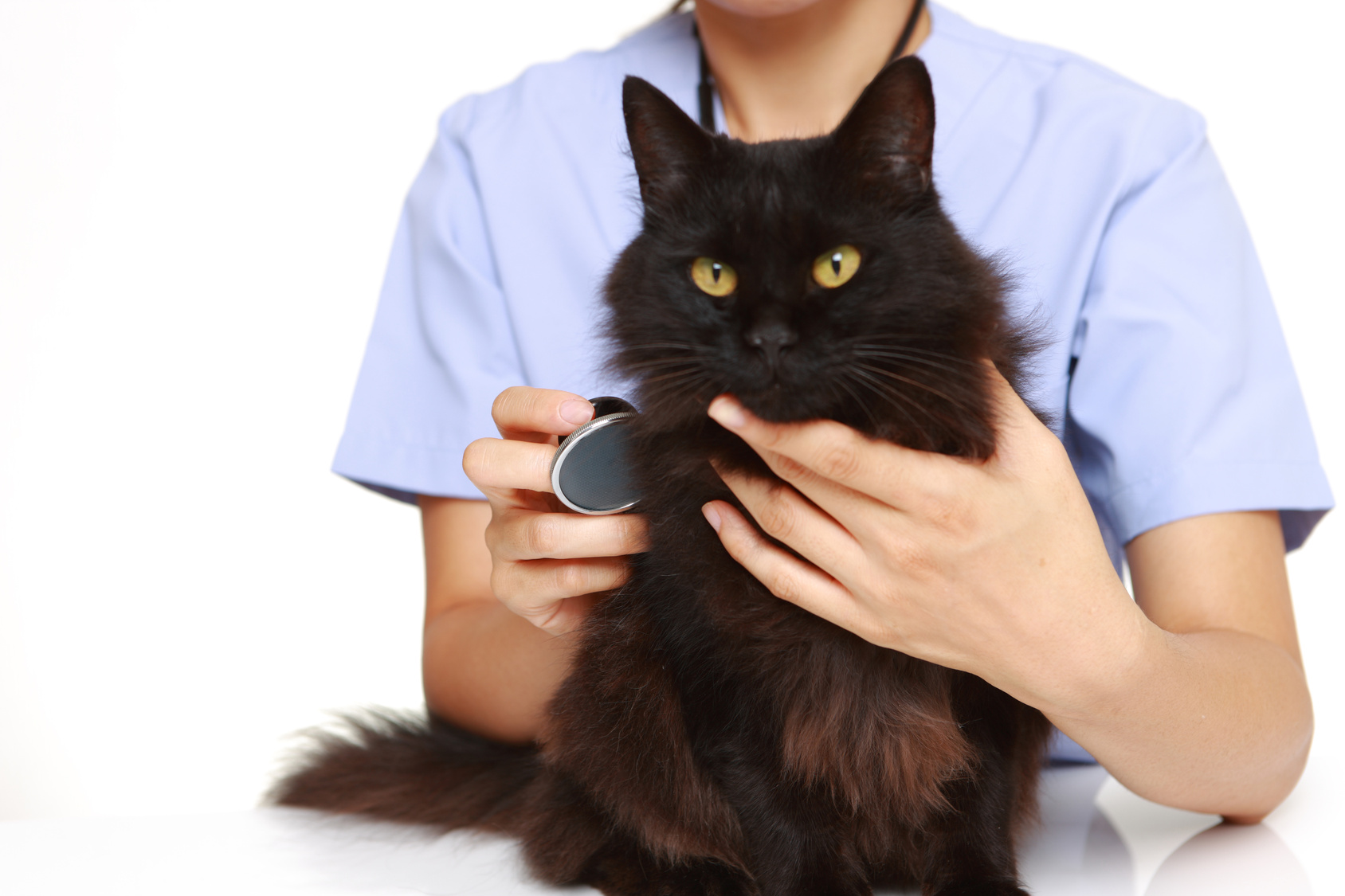
One comment on “Cat Vaccinations: A Quick & Useful Guide”